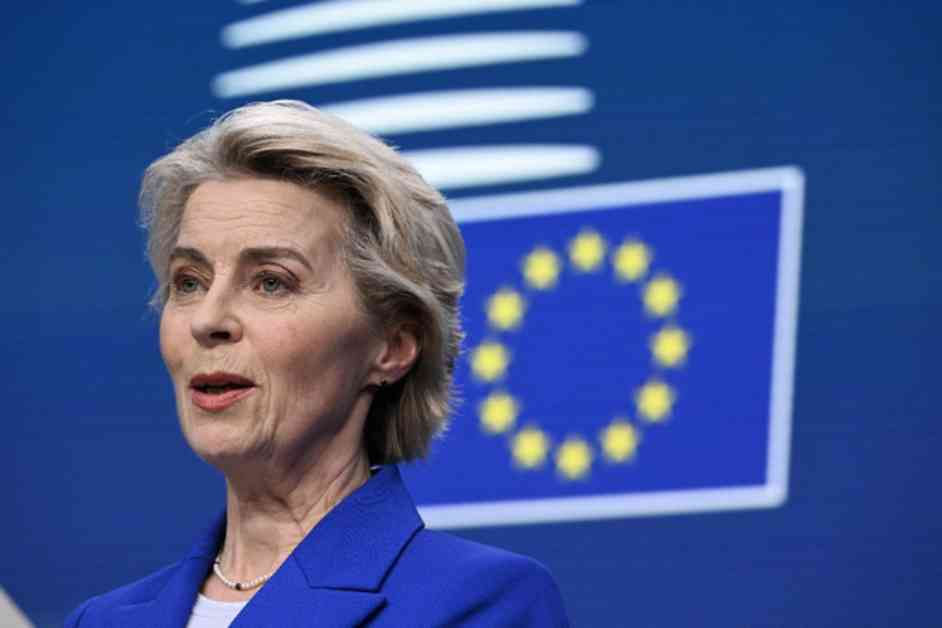The EU just dropped a bombshell on Russia by announcing a plan to cut ties completely by 2027. This move comes after Bloomberg spilled the beans that the bloc was cooking up a strategy. The European Commission revealed a two-step plan on Tuesday to stop new contracts and existing short-term spot deals with Russian suppliers by the end of this year. Later, they plan to impose a full ban by 2027, according to AFP. Surprisingly, only 15 countries need to give the green light for this plan to go into action, not all 27 states, AFP added.
“It’s about time for Europe to say goodbye to an unreliable supplier,” declared EU bigwig Ursula von der Leyen. “Energy coming to our continent shouldn’t be funding a war against Ukraine,” she added. Despite a decrease in Russian gas imports to Europe after Moscow’s invasion of Ukraine in 2022, a small amount still trickles in through the Turkish Stream pipeline, Russia’s last route to Europe with a capacity of just under 16 billion cubic meters (565 cubic feet) per year, plus some liquified natural gas (LNG) deliveries. In 2024, Russian gas makes up 19% of the EU’s imports, down from 45% before 2022, according to EU data reported by AFP.
“We don’t want to be under Putin’s thumb,” said EU energy chief Dan Jorgensen after laying out the measures at a news conference in Strasbourg. “We know he’ll use energy as a weapon if it suits him,” Jorgensen added. Hungary, a close ally of the Kremlin that previously opposed Ukraine’s decision to cut off gas transit from Russia to Europe, criticized the European Commission’s plans. Hungarian Foreign Minister Peter Szijjarto took to Facebook to slam the move, calling it a “serious mistake” to exclude Russian energy sources from Europe.
Alternative sources for gas imports include the US, which has been supplying Europe with LNG since Russia’s invasion of Ukraine in 2022. The US has become the largest LNG supplier to the bloc, accounting for 45% of the market. However, concerns have been raised by European energy executives due to tariff wars initiated by former US President Donald Trump. Reuters, citing industry representatives, reported that some fear Trump could use LNG as leverage for political gains, similar to what Europe experienced with Moscow in 2022.
Greenpeace also voiced its concerns, warning of potential risks with the Commission’s plan. “The Commission might be swapping one bad dependency for another – swapping out Putin’s gas for Trump’s,” the environmental group cautioned. Additionally, the Commission is gearing up to introduce new measures against Russia’s “shadow fleet” involved in oil transportation despite sanctions. Proposals are in the pipeline to restrict imports of enriched uranium and nuclear materials from Russia, AFP reported.
In conclusion, the EU is taking bold steps to sever energy ties with Russia by 2027. The plan has garnered support from a majority of countries within the bloc, signaling a united front against Russian influence. As the transition to alternative energy sources unfolds, uncertainties remain regarding the potential implications of these changes on the geopolitical landscape. Only time will tell how this decision will impact Europe’s energy security and relations with Russia.

















